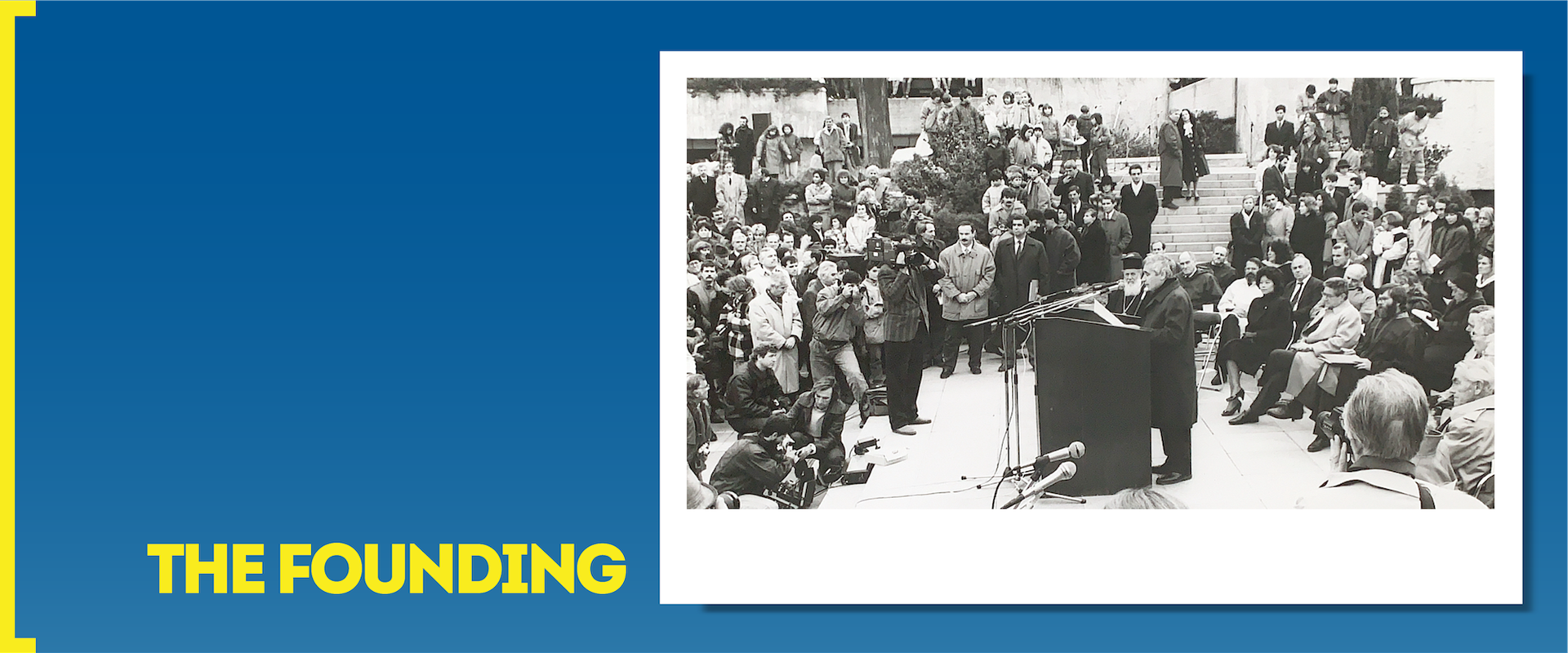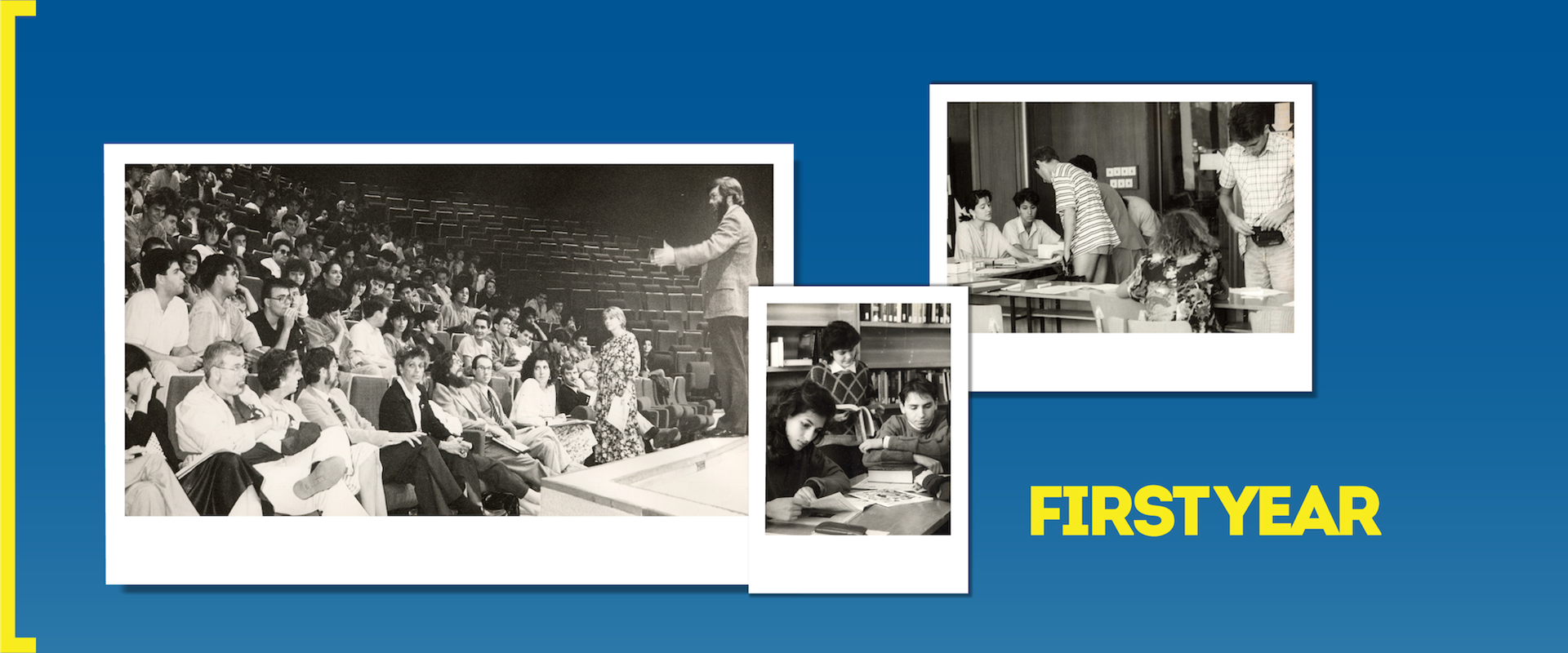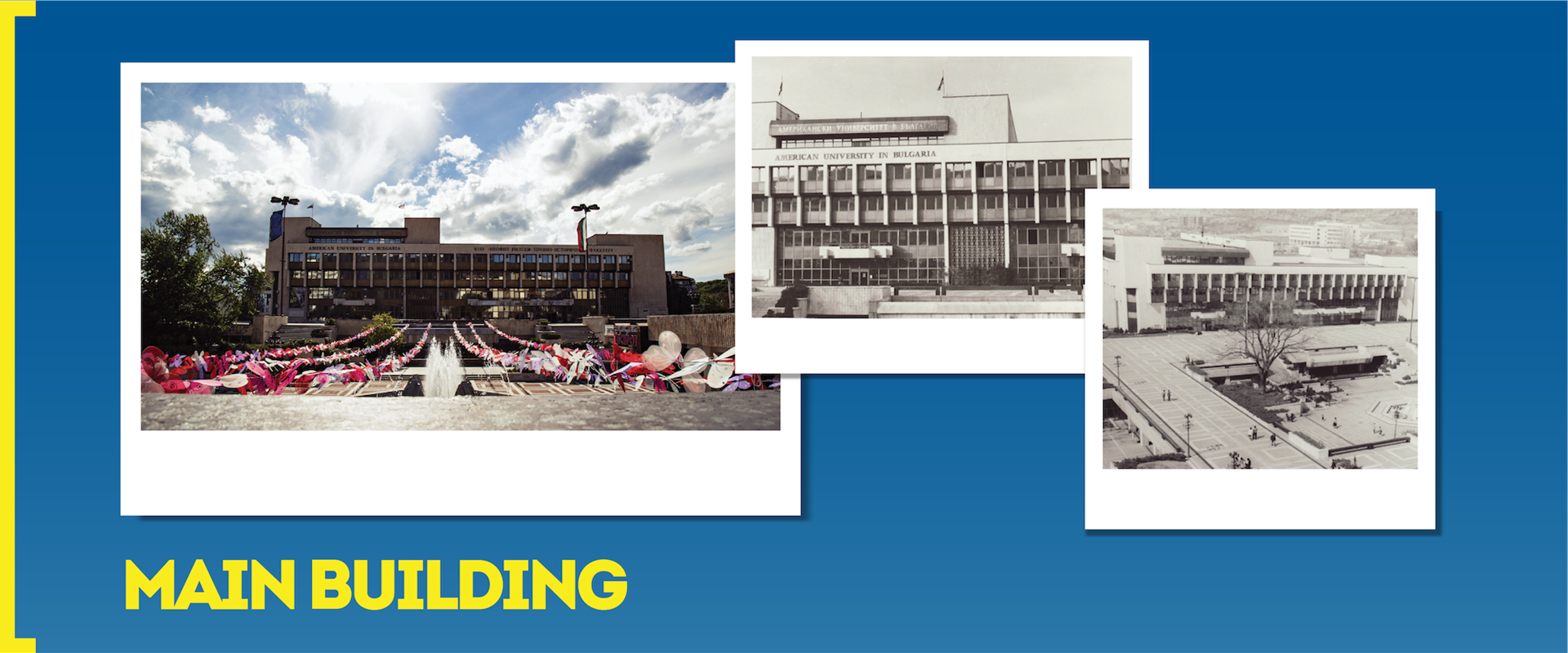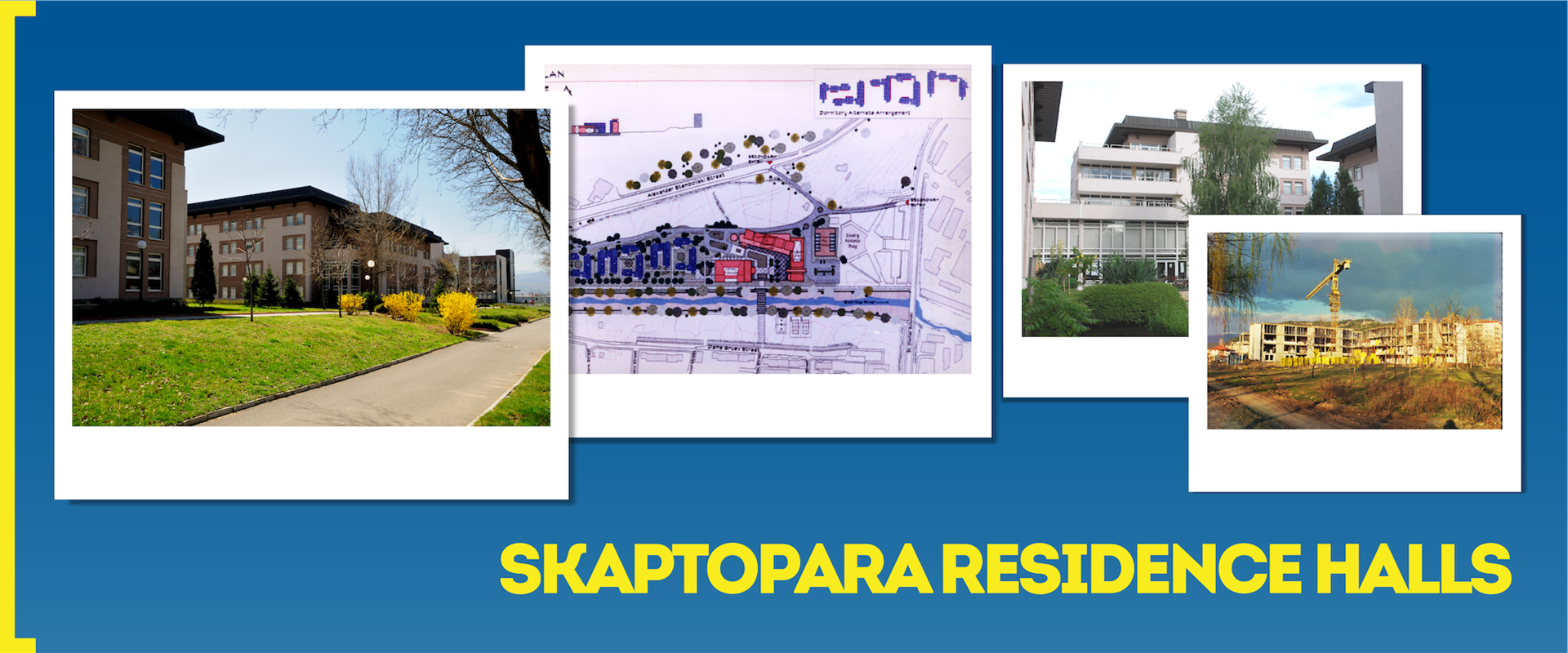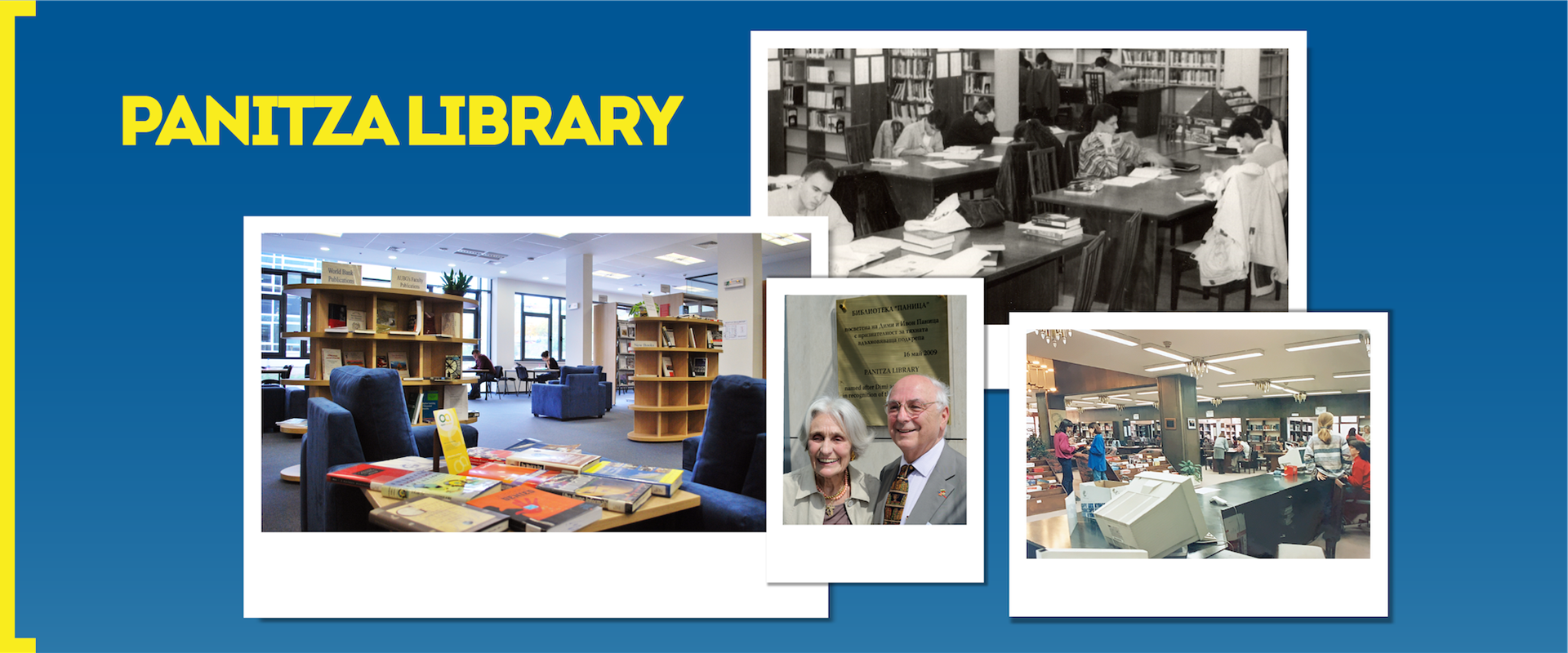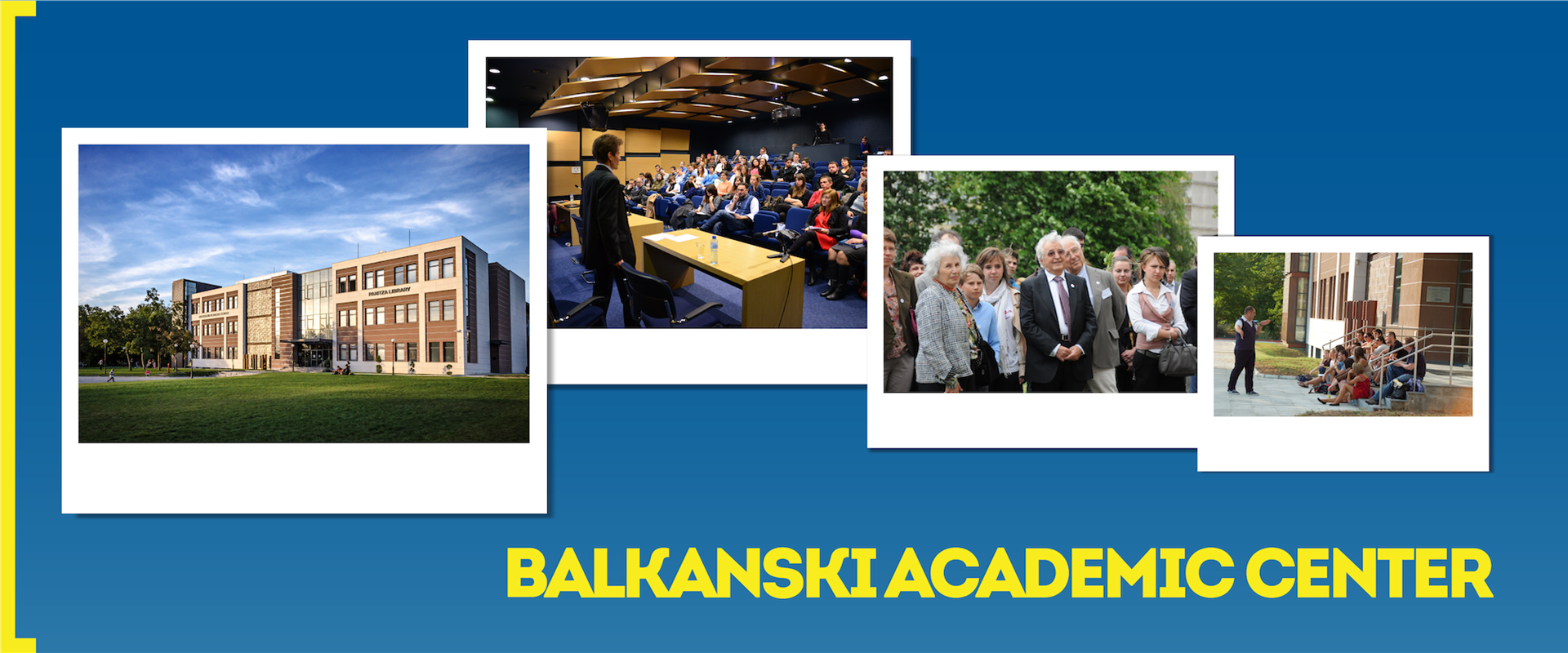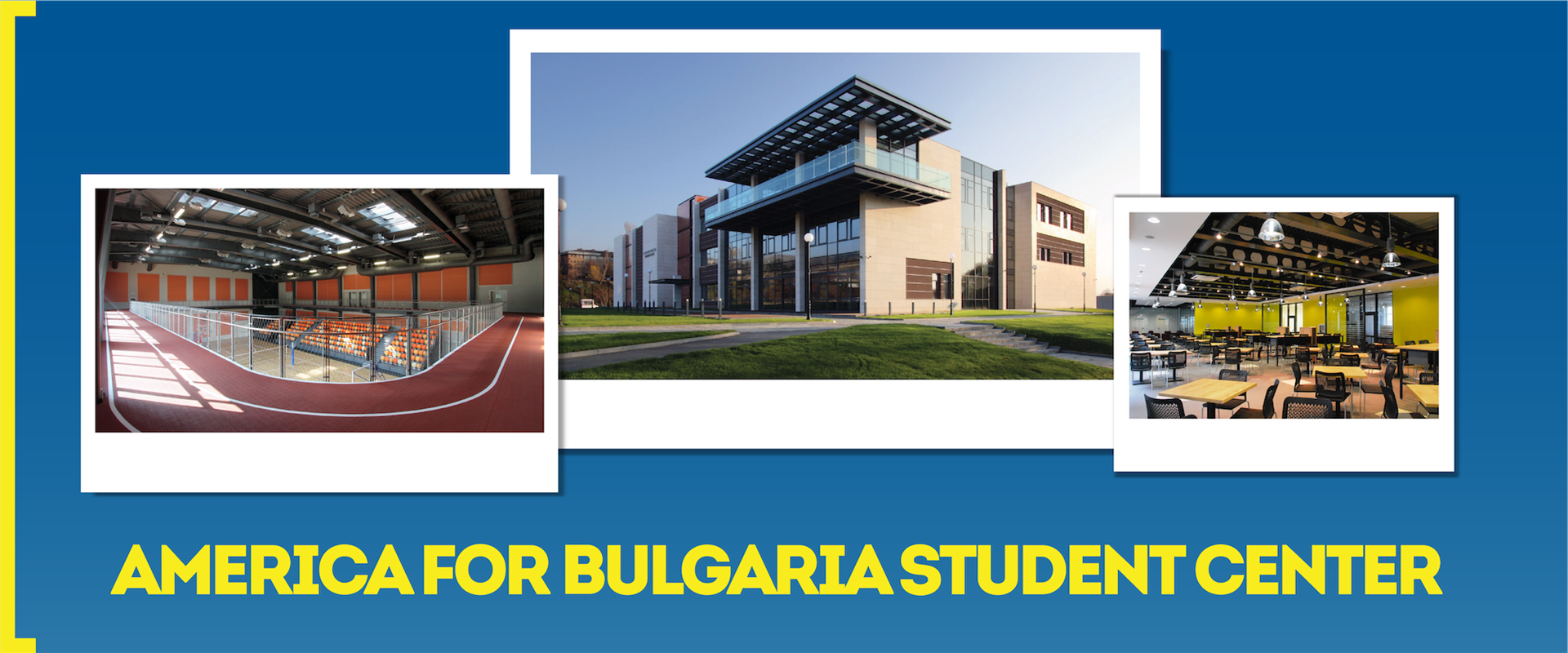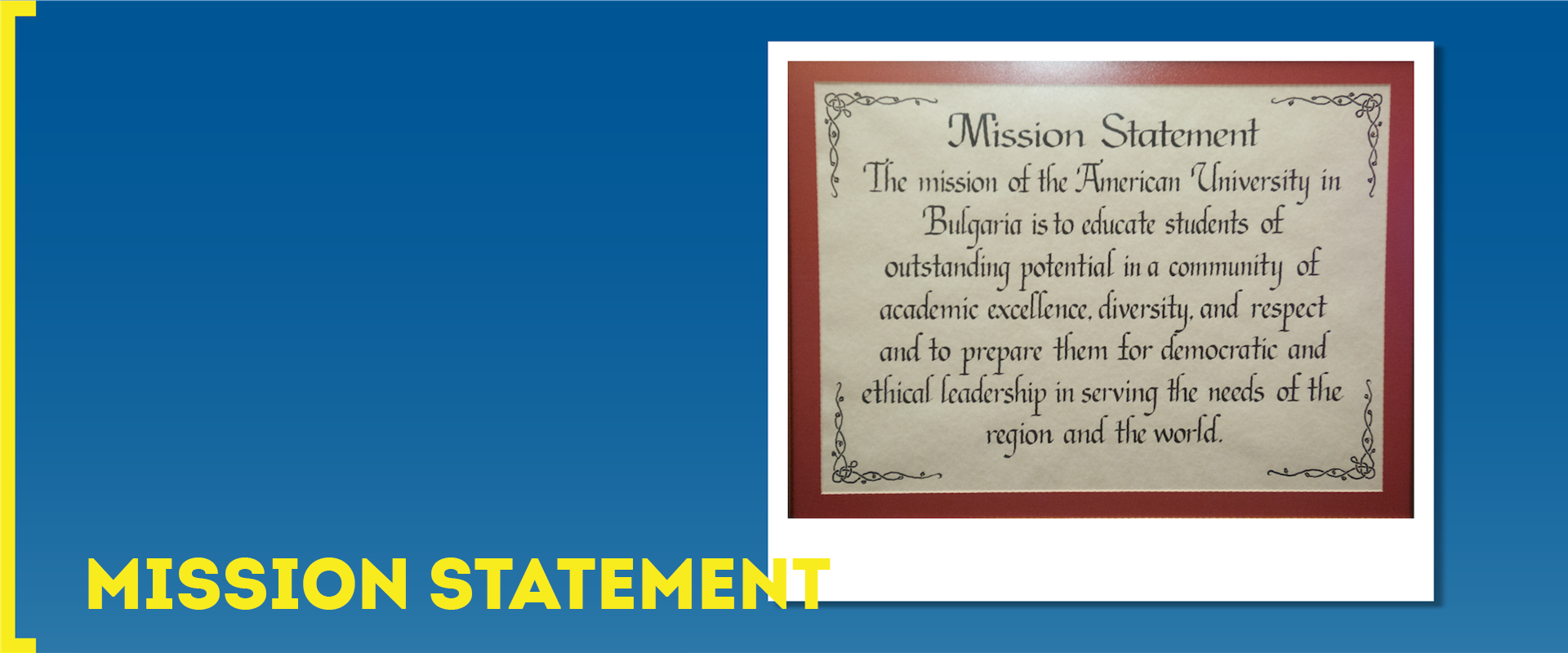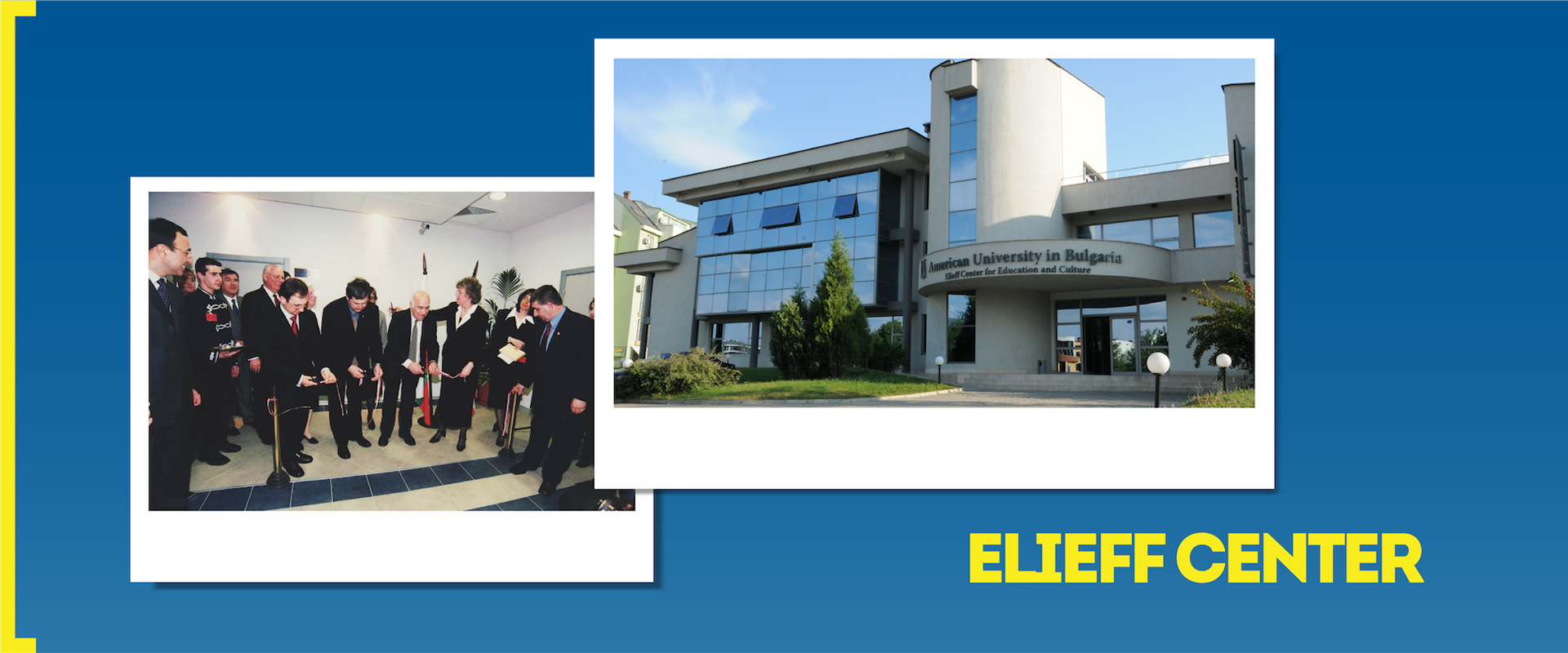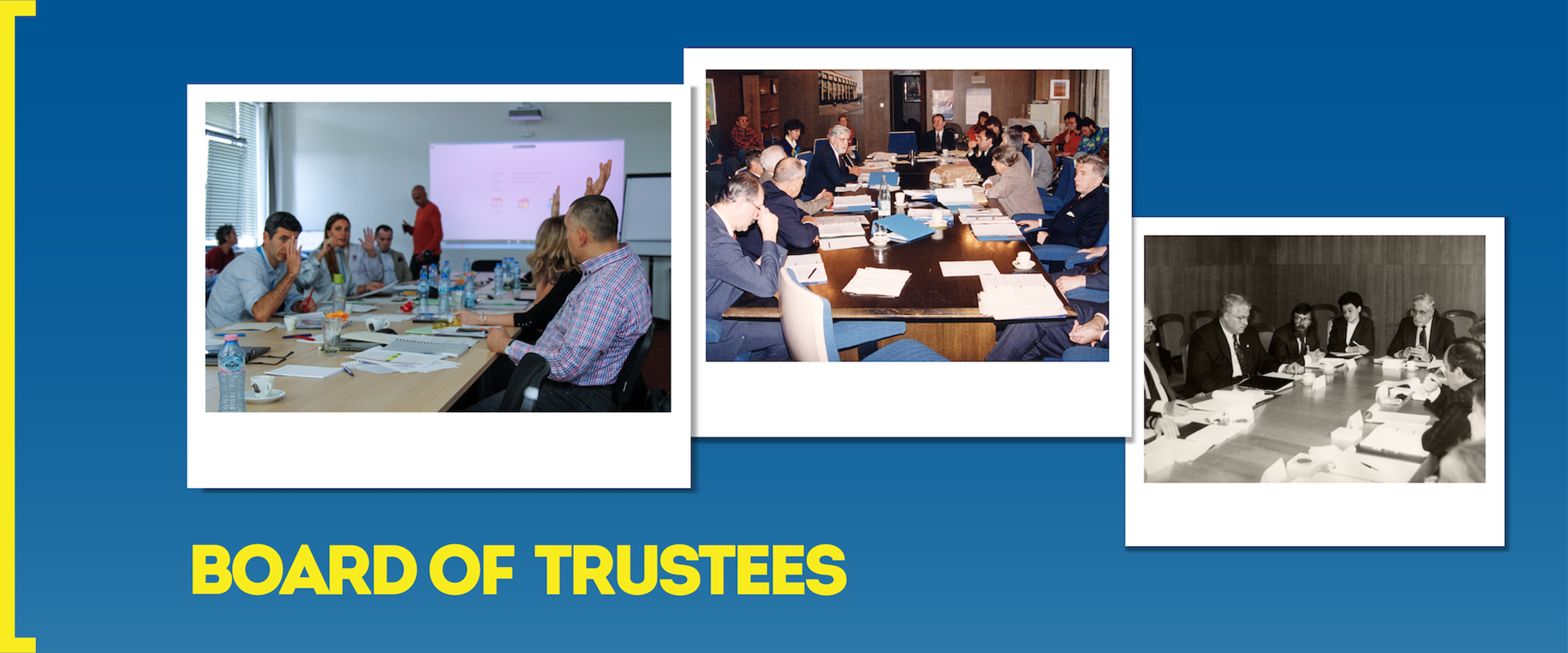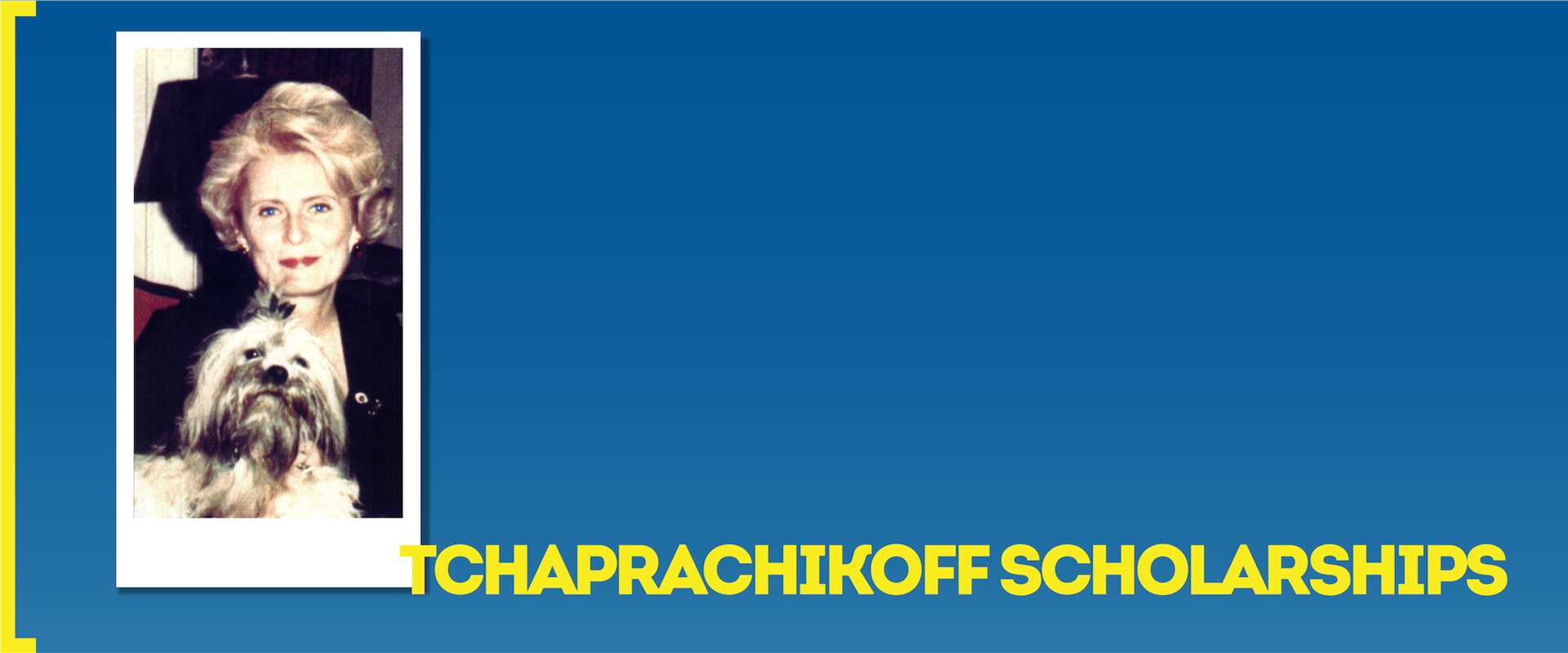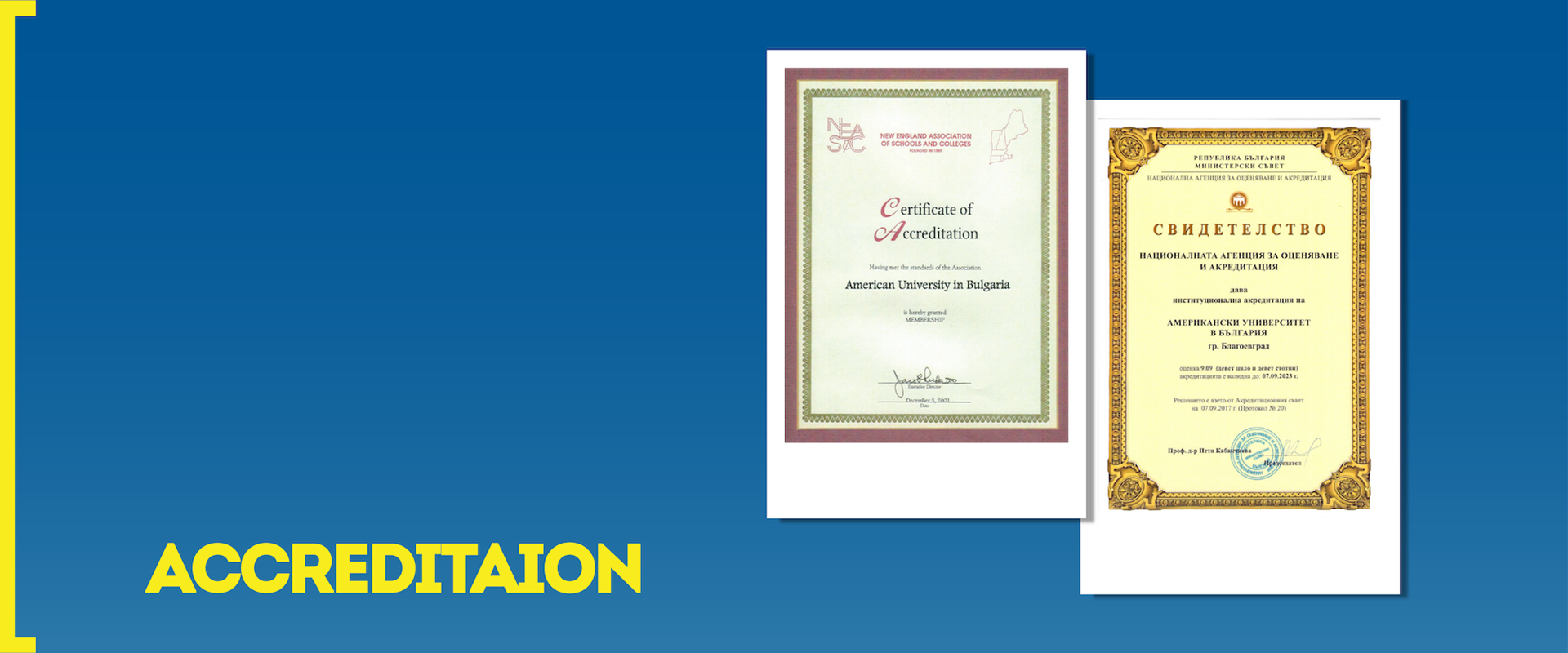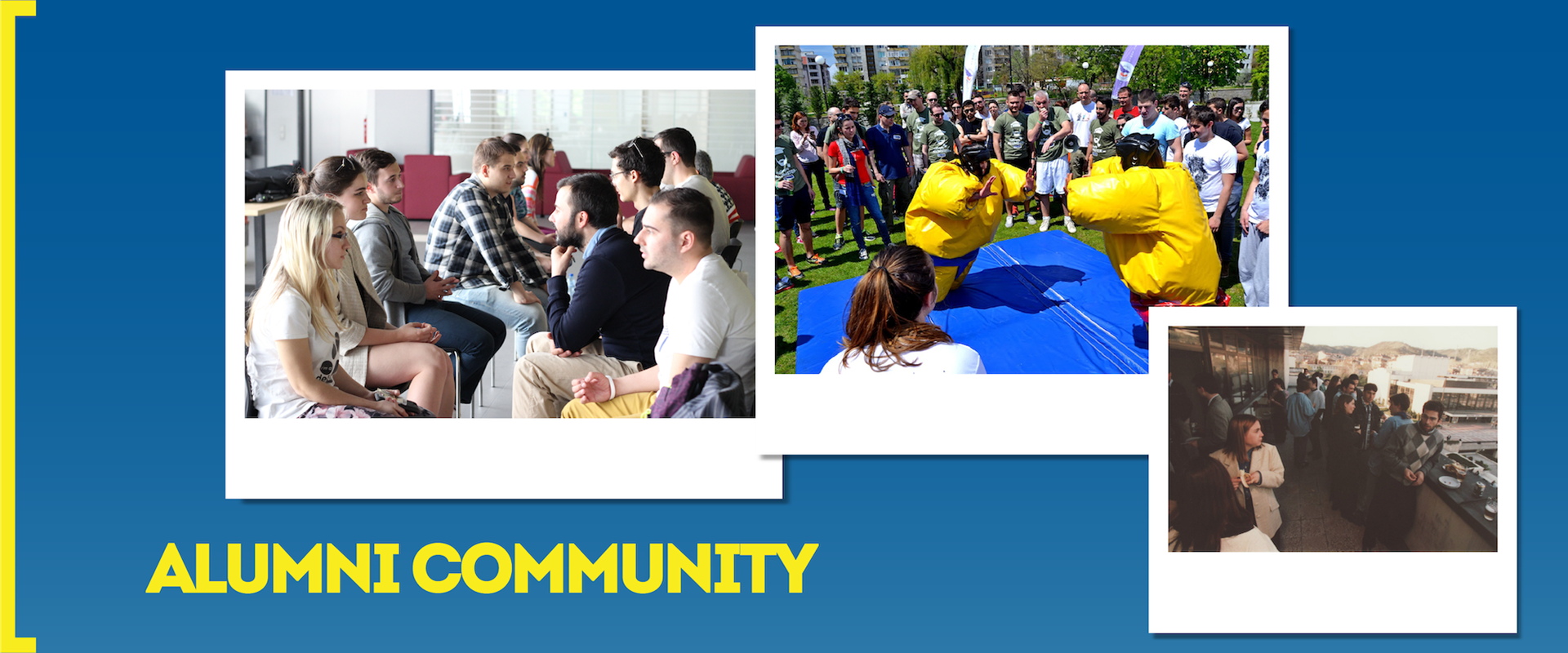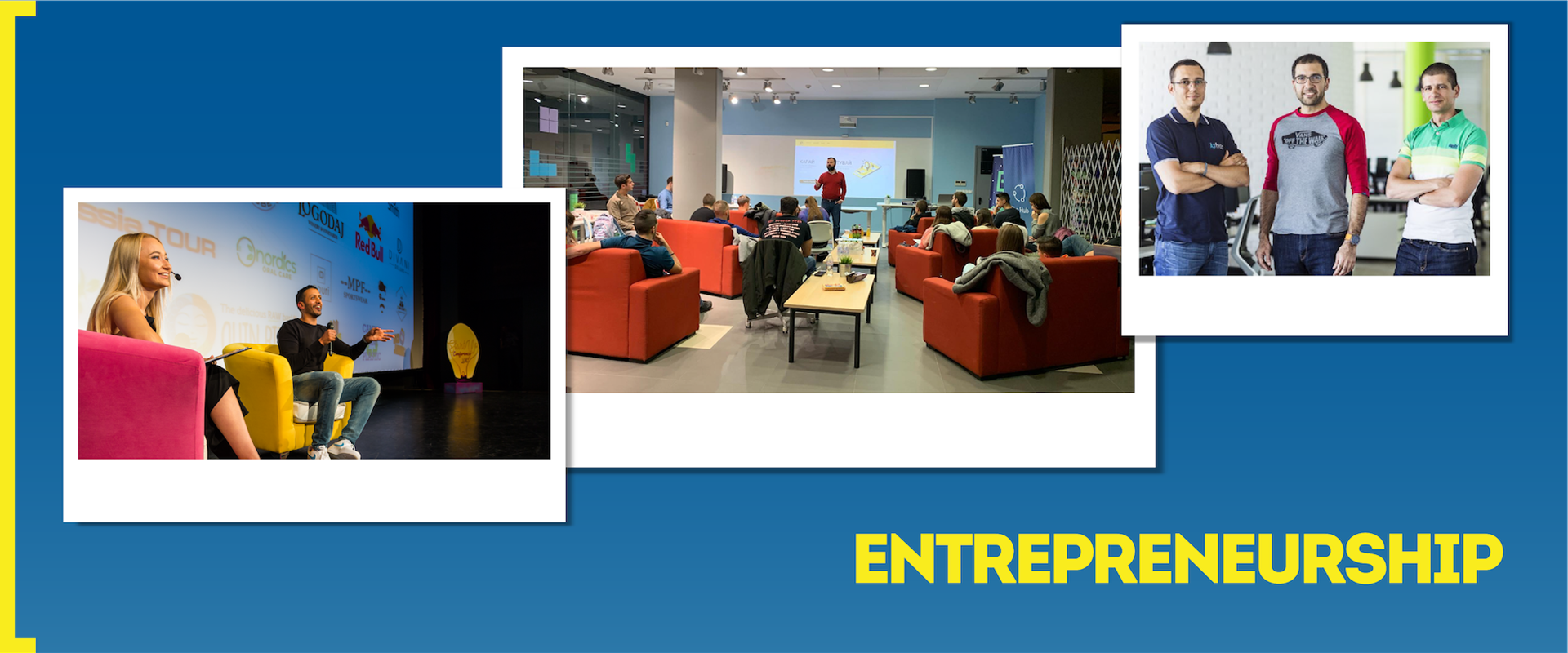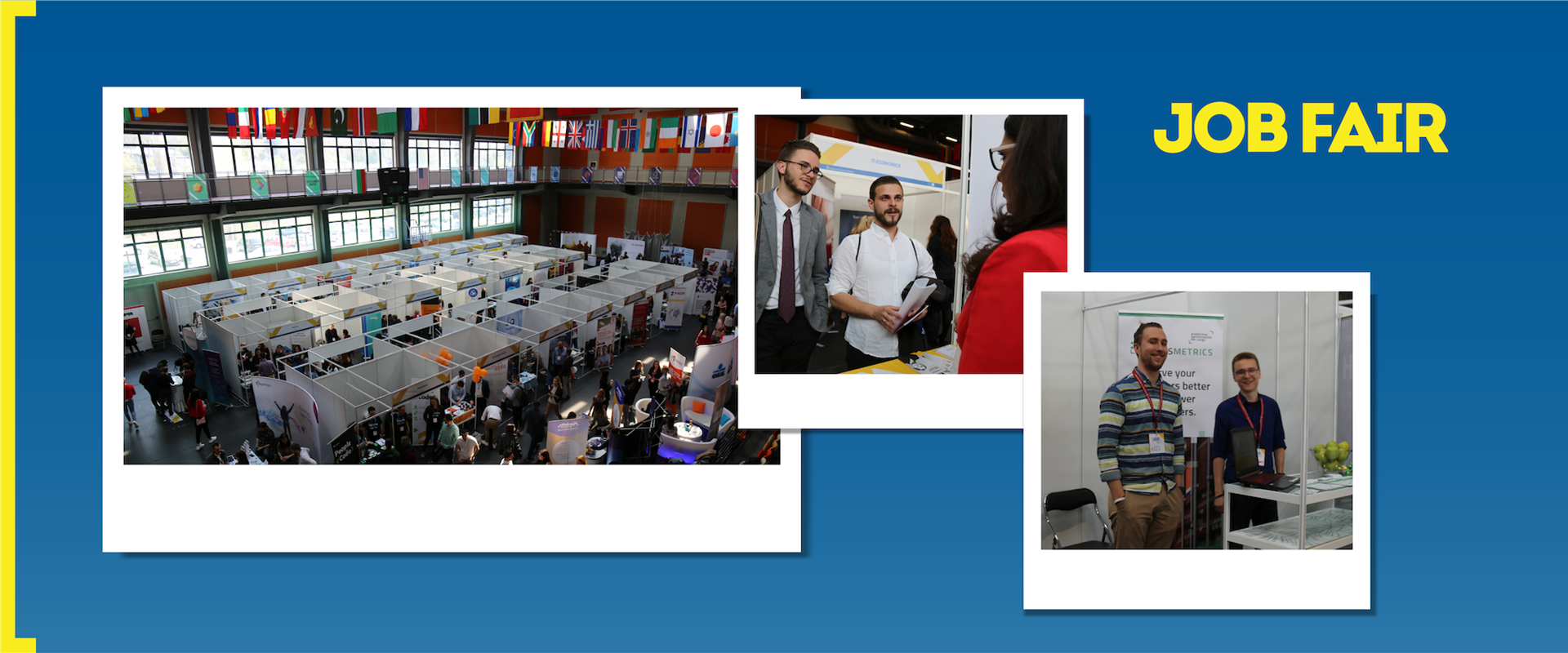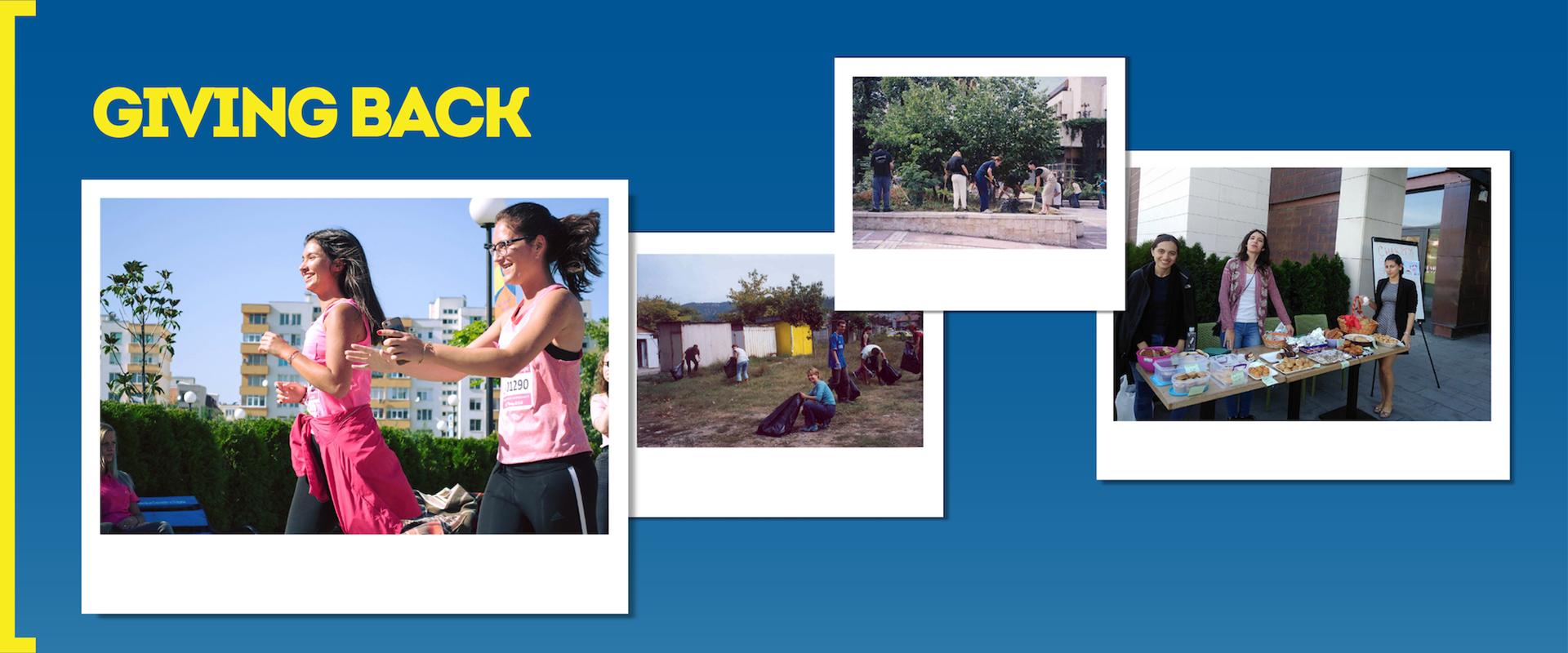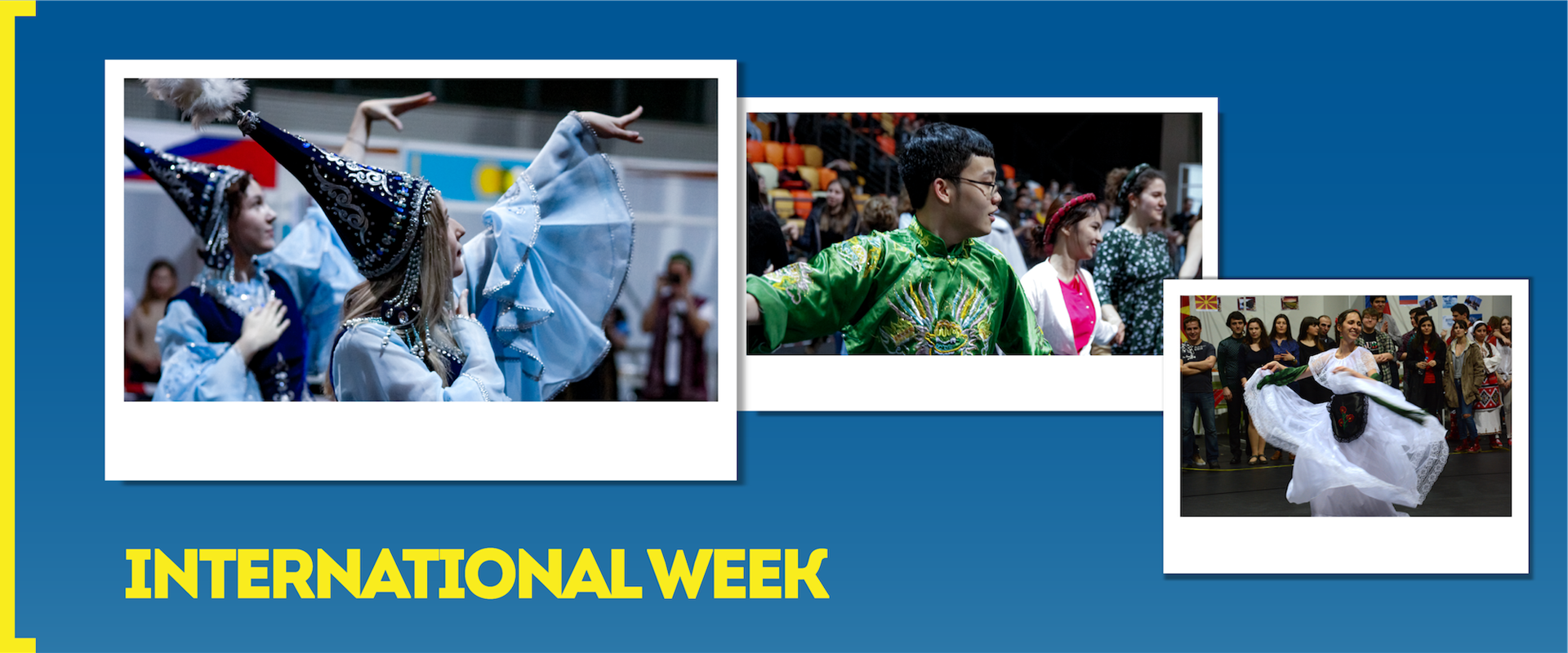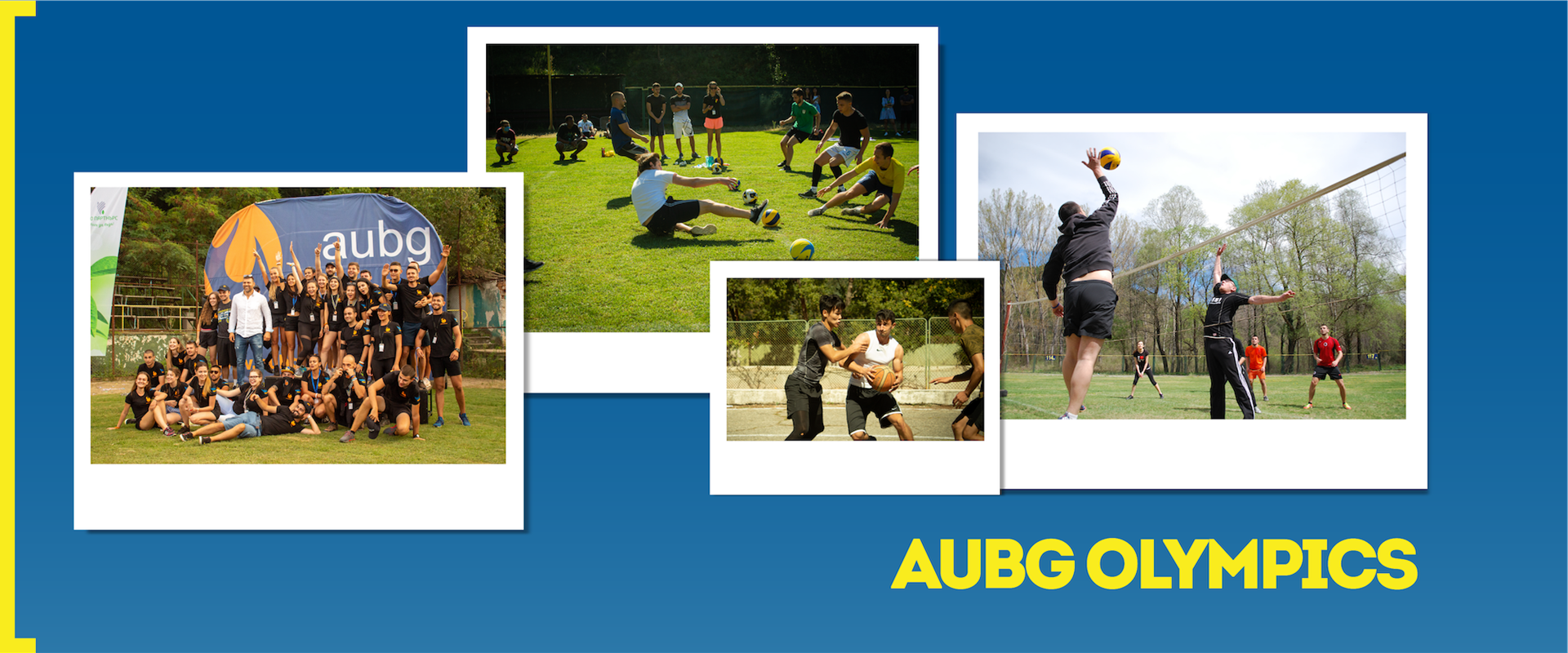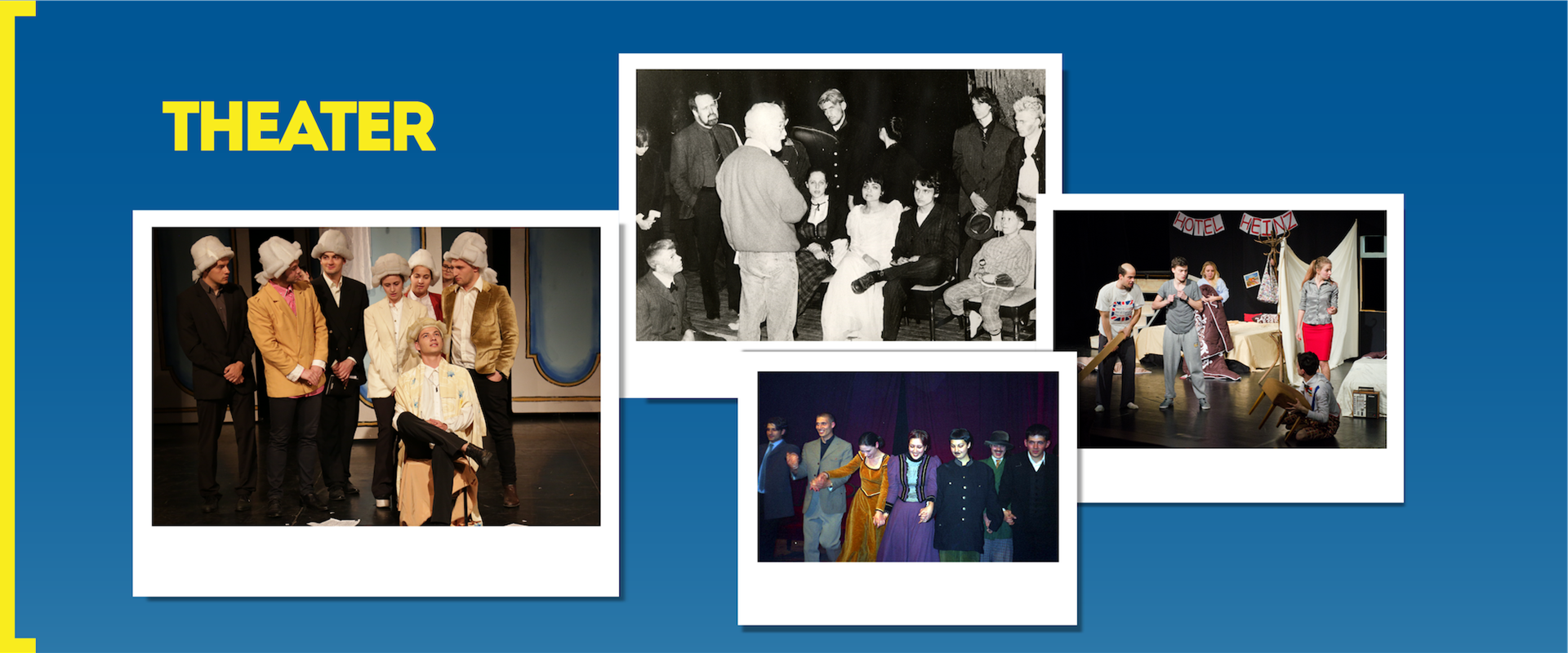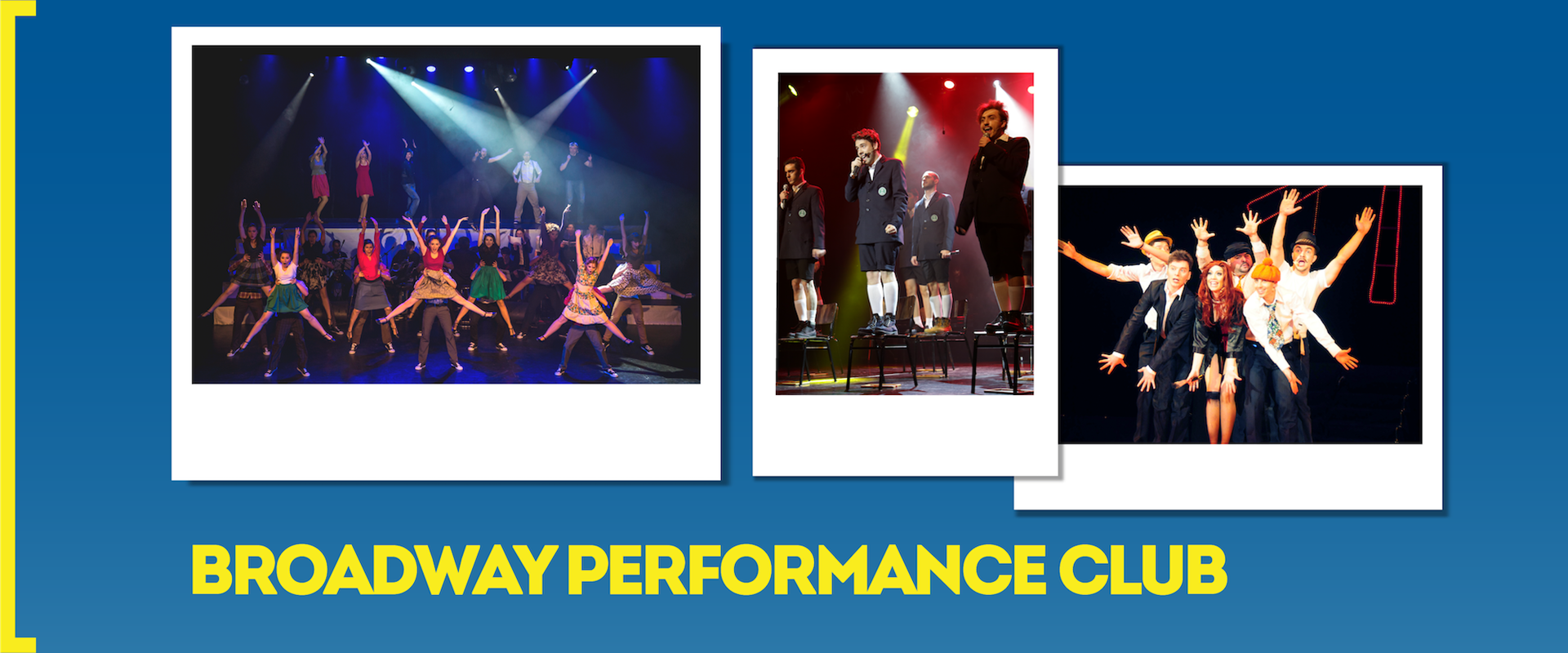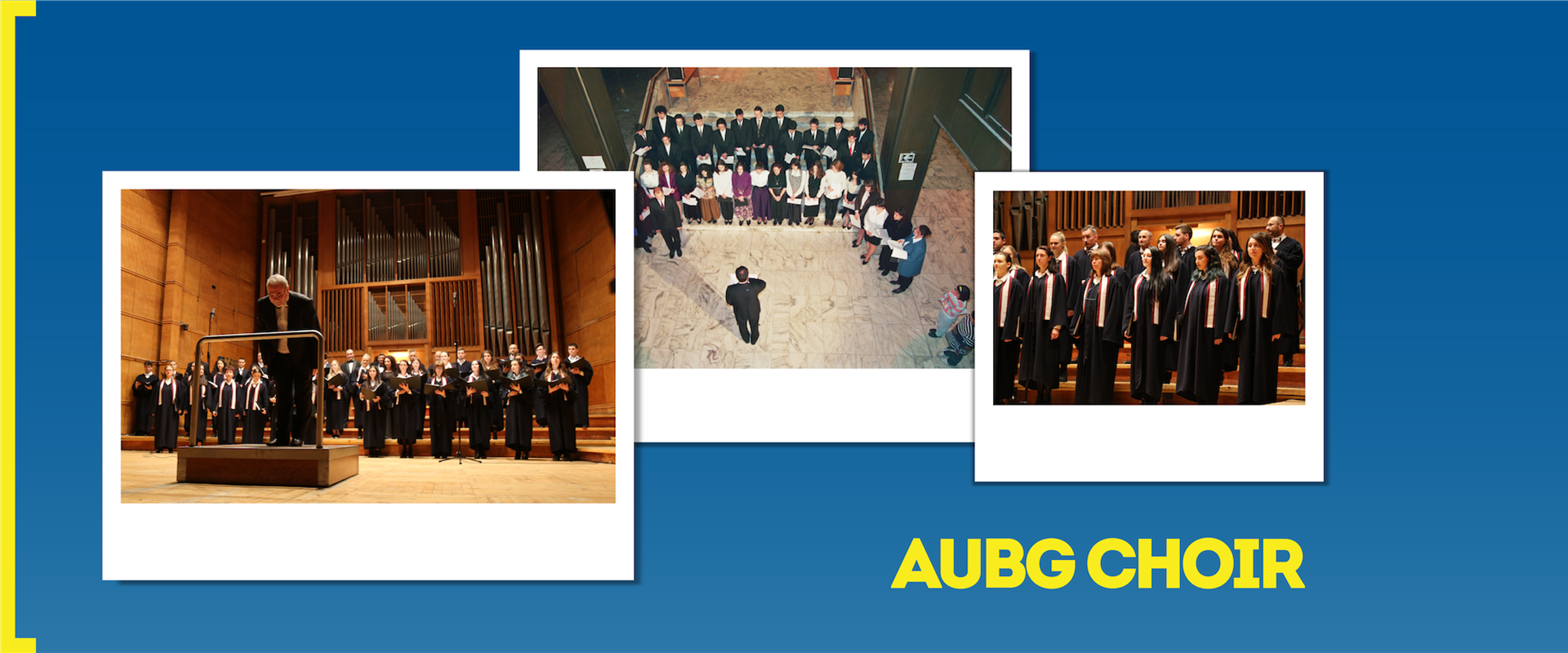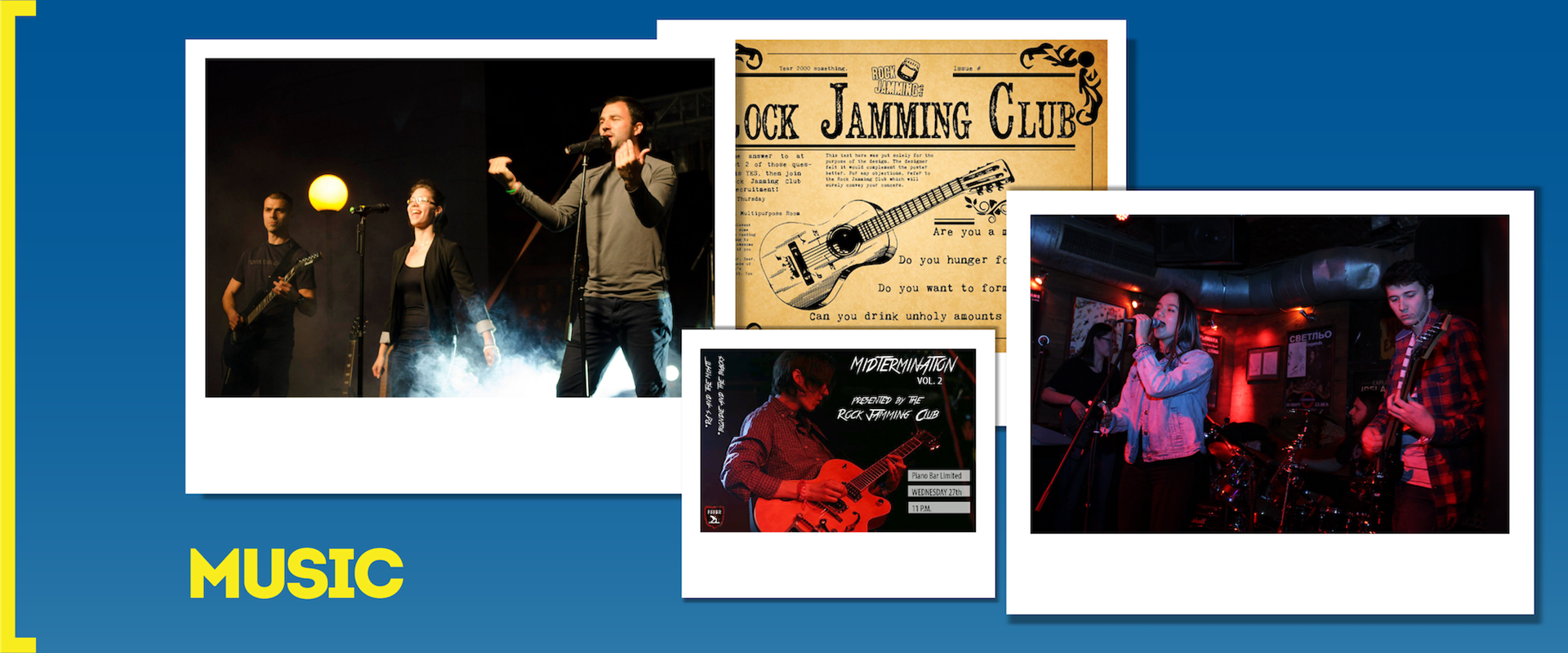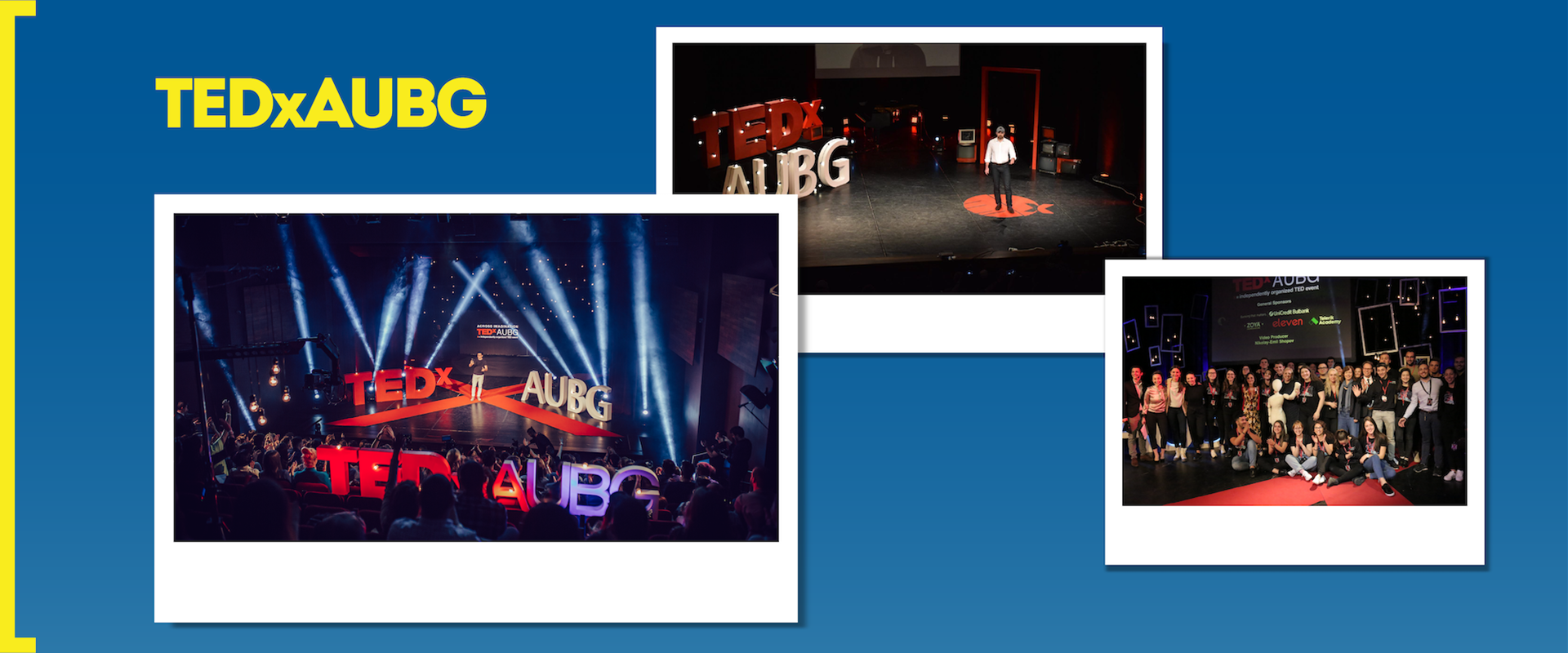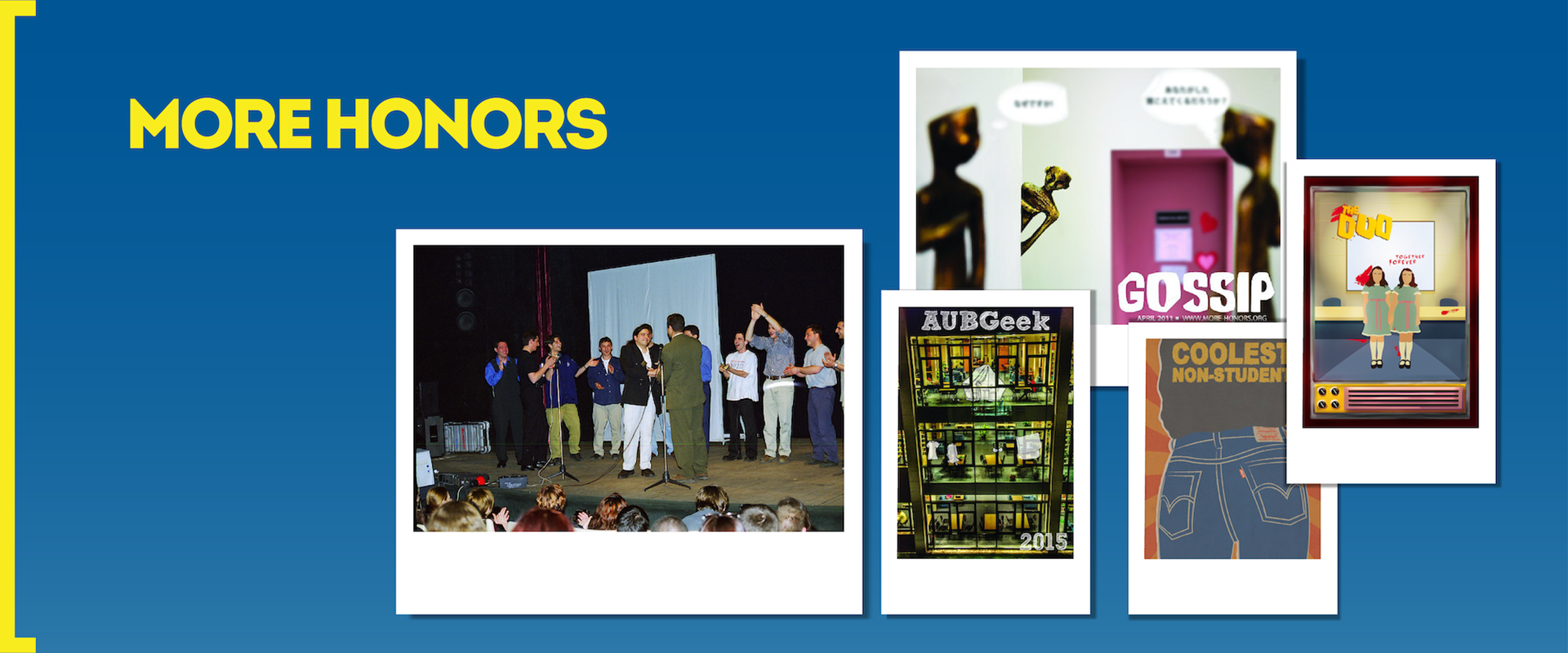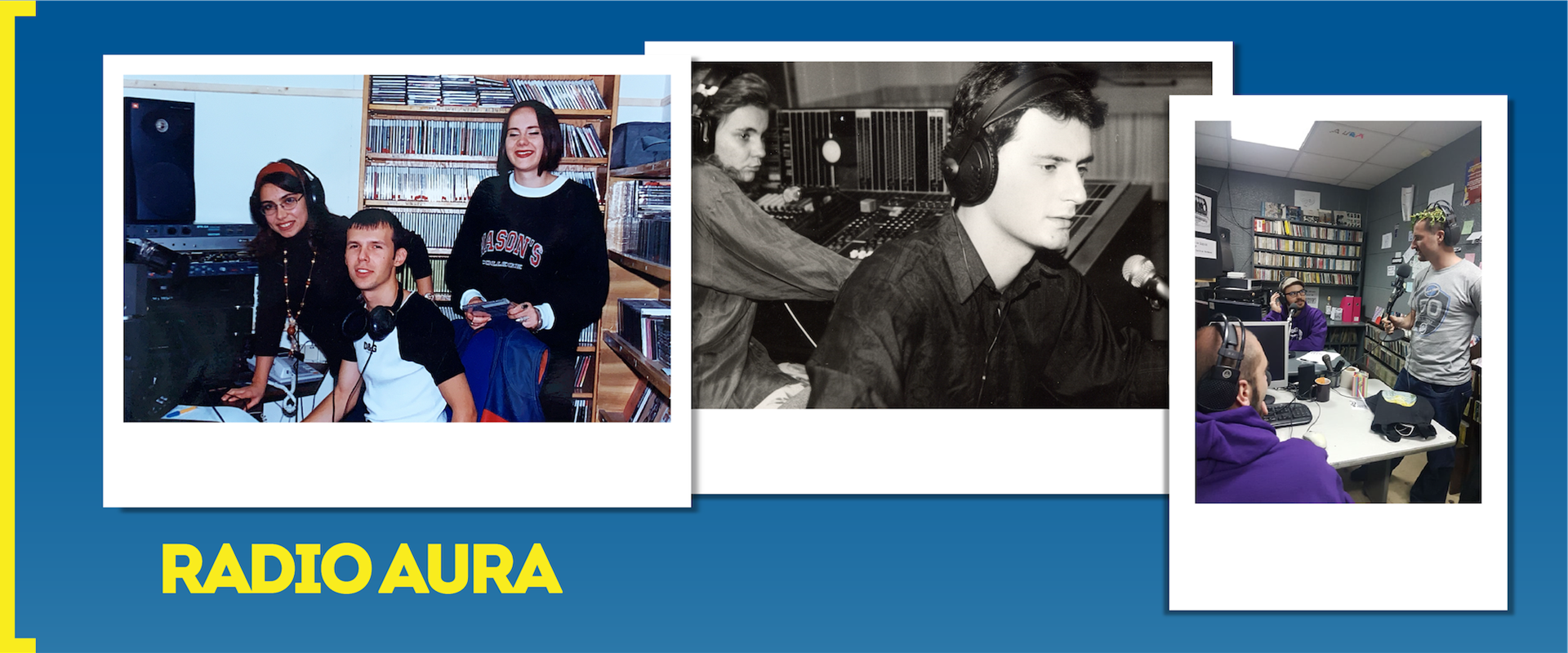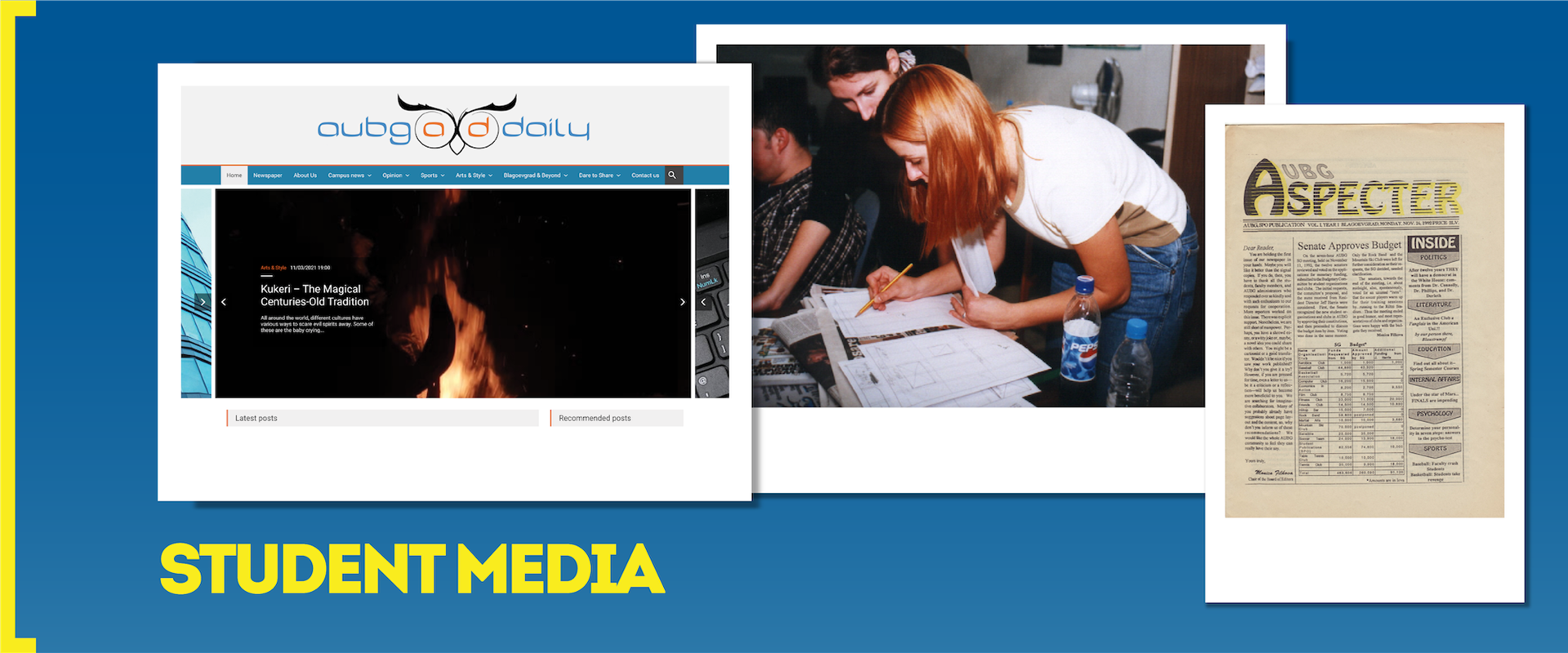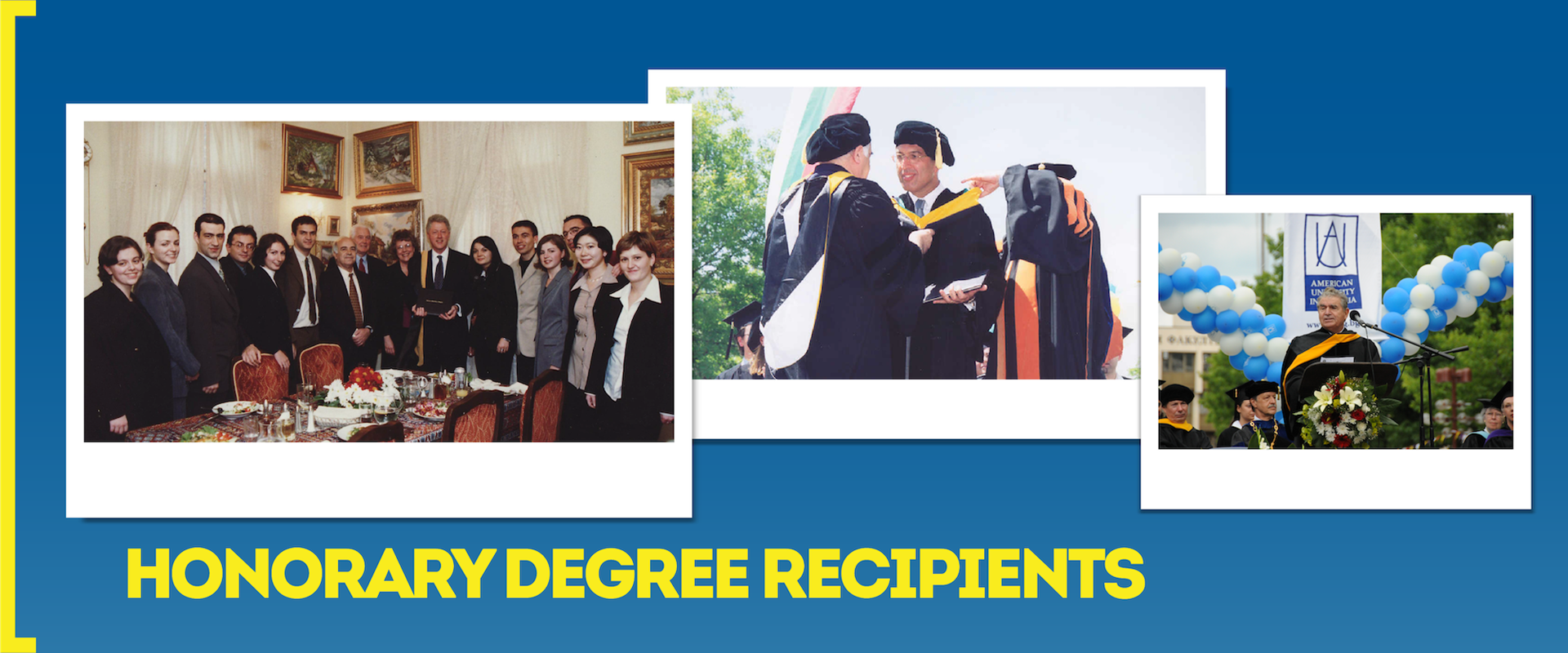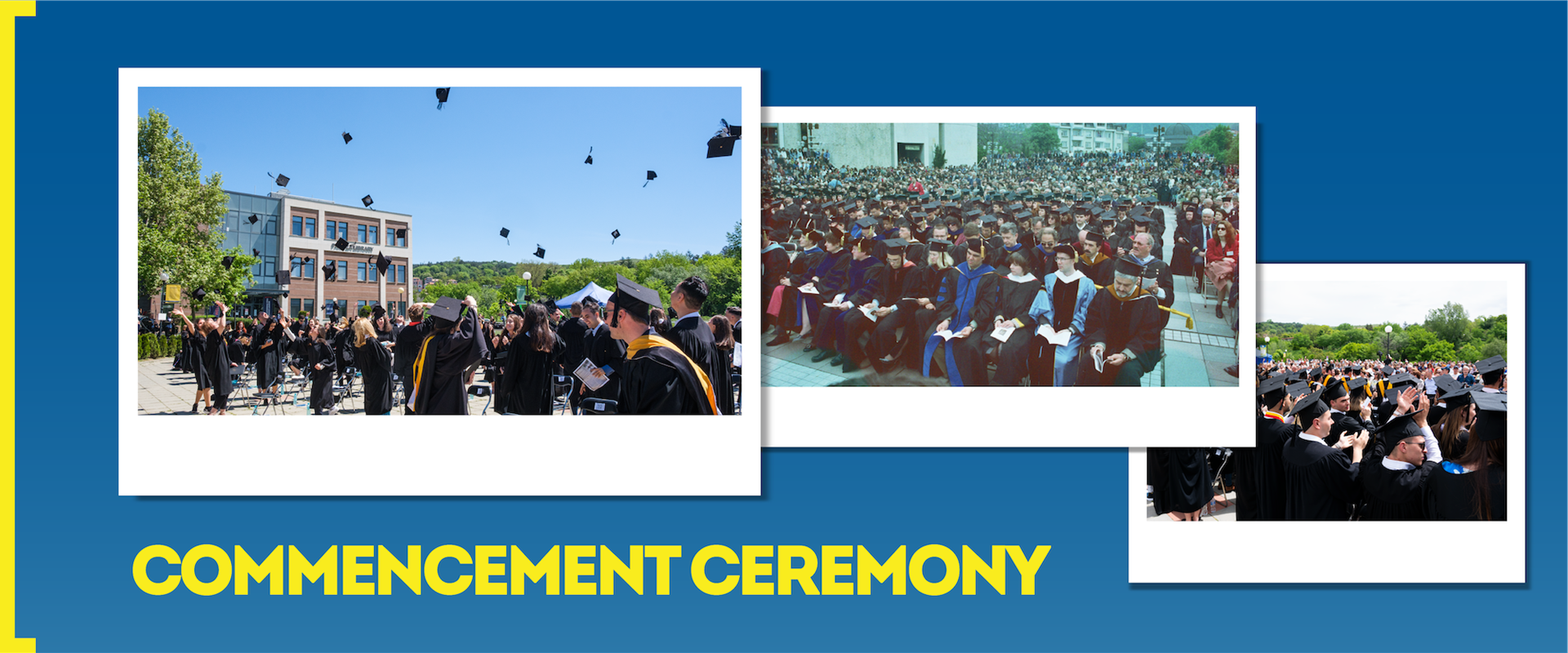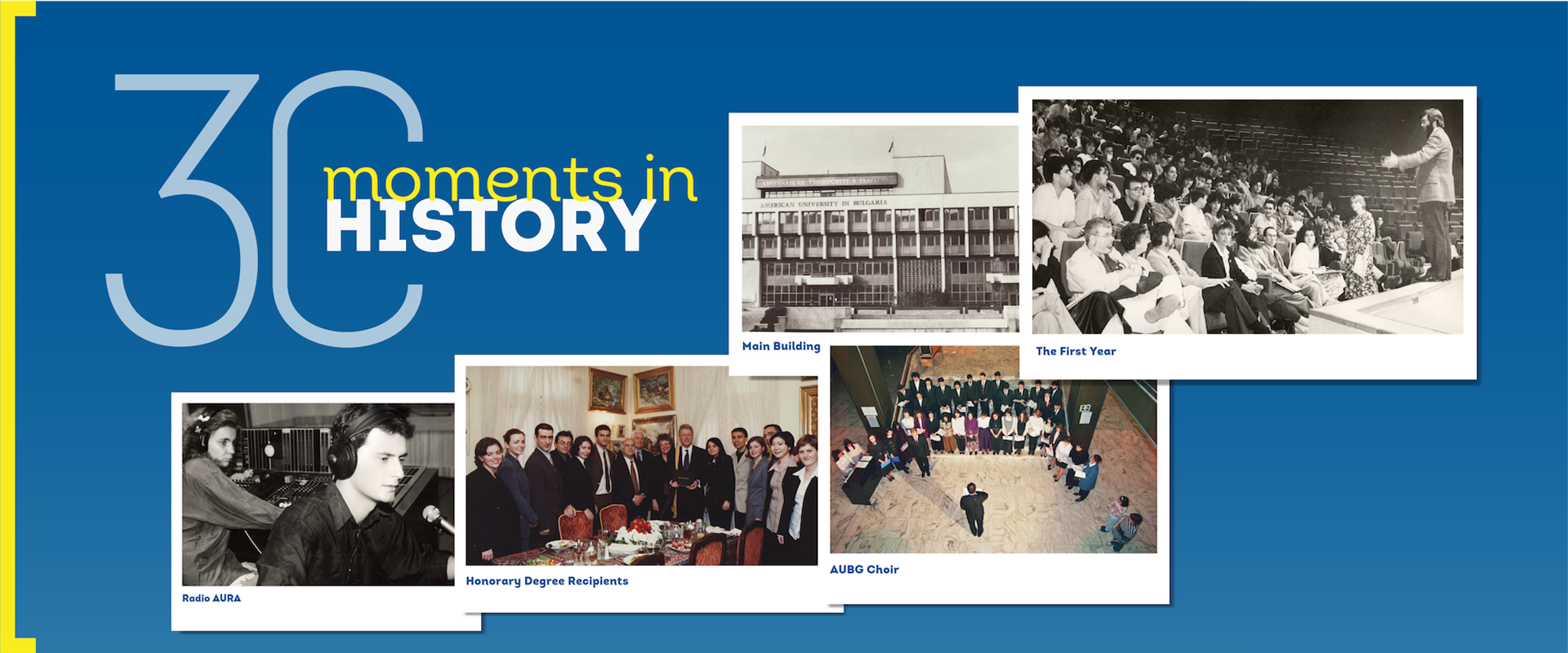
AUBG 30: Moments in History
30 years ago, as Bulgaria entered a new chapter in its long history, a group of people from opposite ends of the world came together to establish the American University in Bulgaria. While the country was moving on from its political revolution, it needed a revolution in education, too. The ones behind the idea for AUBG understood that and sparked the flame.
In honor of AUBG's anniversary, we are showing some of the major moments in the life of AUBG for the past three decades – what helped make the institution what it is and what will keep moving it “onwards and upwards.”
And here you can see some of the people who make the AUBG community proud. Alumni and students who don’t accept the status quo and dedicate their time and efforts to bring change on scales small and large.
No one remembers who exactly came up with the idea for an American university in Bulgaria. Some say it was John Menzies, Cultural and Press Officer at the U.S. Embassy in Sofia, or perhaps George Prohasky, Director of the Open Society Foundation in Sofia. Whoever it was, this idea quickly attracted many supporters (and opponents) who helped make it a reality.
In less than two years, thanks to the efforts of people like Menzies, Prohasky, Blagoevgrad mayor Eliana Maseva, journalist and philanthropist Dimi Panitza, University of Maine Chancellor Robert Woodbury, President Zhelyu Zhelev, Ambassador Sol Polansky and many others, the American University in Bulgaria came to be. On June 24, 1991, the school opened its doors to the public.
Classes at AUBG started on September 30, 1991, with 18 faculty members and about 200 students. But to get there, everyone involved went through a summer of crazy preparations.
Students had to take the SAT, and the university administration had to organize this exam, previously unknown in the country. The former communist party building that became the university campus had to be adapted into classrooms and labs. Basic equipment was needed to provide good living conditions for students - plates, cutlery, blankets … To secure all this, staff traveled across the country in the heat of summer to buy directly from factories, the only way at the time. Furniture and other supplies came from U.S. military bases in Greece and Germany being closed or downsized after the end of the Cold War.
With the academic year underway, a tight community was formed. Faculty, staff, and students often shared meals or partied together. This community became something like an extended family for many, something that remains even 30 years later.
Completed in 1987 as, ironically, the local headquarters of the Bulgarian Communist Party, the AUBG Main Building has been a symbol of the university since its founding. Local officials offered the massive facility for the newly established institution to compete with larger cities like Sofia and Plovdiv. Ultimately it was a key factor in deciding to place the university in Blagoevgrad.
With dormitories initially scattered across town, the Main Building was the heart of AUBG for many years. This is where classrooms, laboratories, offices and the library were. Today, even with the expansion of the Skaptopara campus, the building remains an important part of the university's history.
In the first few years after AUBG’s founding, students lived in different places across Blagoevgrad - Hilltop, the Volga Hotel and an old communist party residence, to name a few. But in the fall of 1998, the first of three residence halls opened in what would become the Skaptopara campus. In the following years, two more buildings welcomed AUBG students - Skaptopara II in 2002 and Skaptopara in 2010.
The dorms provide students with more than just a place to sleep. The buildings offer spacious study and lounge areas, multipurpose rooms, game and music rooms, as well as beautiful green courtyards.
The name Skaptopara comes from that of the Thracian settlement founded around 300 BC where Blagoevgrad is now.
The AUBG library has been an essential part of the university since its founding. Growing year by year, the library moved from various spaces in the Main Building throughout the 90s to its current four-story home on the Skaptopara campus in 2008.
Starting with only a few hundred titles in its first year, today the Panitza Library boasts a collection of more than 120,000 books, 300,000 eBooks, 40,000 electronic journals and more. It is one of the largest English-language libraries in the Balkans.
The library bears the name of Dimi and Yvonne Panitza in recognition for their support and inspiration. The couple helped develop the institution into a modern center of learning and research.
The Balkanski Academic Center is the educational hub of the Skaptopara Campus. With its classrooms and computer laboratories, it is the site for learning and working on projects. The Andrey Delchev Auditorium inside it has hosted many prominent guest lecturers, conferences and seminars. The direct connection to the Panitza Library makes for an integrated learning environment.
Originally named simply the New Academic Building when it opened in 2007, it was dedicated to renowned physicist Professor Minko Balkanski in 2010 in honor of his generous support for AUBG.
Built in 2012, the America for Bulgaria Student Center is the heart of the AUBG campus. The multipurpose building houses a state-of-the-art theater, gym, sports hall, running track, administrative offices, bookstore, restaurant and cafe. Spacious study and lounge areas give students the opportunity to catch up on course work or hang out with friends. The center also houses the Aspire hub, an event and co-working space established in 2016 to nurture the students’ entrepreneurial spirit.
The student center bears the name of the America for Bulgaria Foundation in recognition of its generous support.
Since its founding, AUBG and the people around it have been driven by a purpose, reflected in the university mission statement. While it has been updated several times over the years, the values of democracy, respect and service to the development of the region have always been at its core.
The current mission statement, adopted in 2009, reads:
“The mission of the American University in Bulgaria is to educate students of outstanding potential in a community of academic excellence, diversity, and respect and to prepare them for democratic and ethical leadership in serving the needs of the region and the world.”
In 2003 AUBG expanded its educational portfolio beyond undergraduate programs. The Executive Master in Business Administration, the first of its kind in Eastern Europe, provides hands-on training focused on innovation and entrepreneurship. With classes taking place at the Elieff Center in Sofia, it is designed to fit the busy schedules of business professionals.
After 18 years and hundreds of graduates, AUBG’s EMBA program has become a leader in business education in the region. It has proven to offer a career boost to alumni, helping them move up within their organization or giving them the skills to set up their own enterprise.
In 2003 AUBG took a new step in fulfilling its mission of educating the leaders of tomorrow, a step beyond the Blagoevgrad campus. The Elieff Center for Education and Culture is designated as a space for innovation and interactive activities. The educational environment of the center is completed by a number of executive and continuous education programs, trainings, masterclasses and distinguished lectures of prominent scholars and European and American business leaders. It is the home of AUBG’s Executive MBA program.
The center is the eponym of Eliot Elieff, a great supporter of AUBG. He was one of those Bulgarian immigrants who left Bulgaria in the early 1900s but forever kept his home in his mind.
The Board of Trustees is the governing body of AUBG. It sets the strategic direction, broadly oversees policy and makes legal decisions for the university. Under the leadership of the board chair, the trustees appoint and offer advice and counsel to the president, and consult with them on the appointment of senior officers of the university.
Members of the board are elected for three-year terms and include business professionals, academics and diplomats from across the world. In recent years, thanks to their dedication and growing success, the number of alumni on the Board of Trustees has been steadily growing.
Thanks to the generous posthumous donation of Bulgarian philanthropist Anna Tchaprachikoff, AUBG has been able to further support the development of its alumni. The Tchaprachikoff fund offers scholarships to Bulgarian students who have been accepted to a graduate program at one of the top U.S. universities.
Anna Tchaprachikoff was a patriotic Bulgarian who believed that education is the best investment in the future and that the best way to help Bulgaria develop is to provide its youth with the best educational opportunities.
Since 2009, the Tchaprachikoff fund has distributed more than $1.3 million to 39 students.
The American University in Bulgaria is accredited in both the United States and Bulgaria. This means students receive two diplomas that are valid in both the EU and U.S.
The National Agency for Evaluation and Accreditation awarded AUBG Bulgarian accreditation in 2001 and has continued to renew it with high evaluations.
In the U.S. the university has been accredited by the New England Commission of Higher Education (formerly the Commission on Institutions of Higher Education of the New England Association of Schools and Colleges, Inc.) since 2001. Before that, the University of Maine had extended its accreditation to the academic courses and degrees of AUBG.
One’s connection to AUBG remains long after graduation. The university takes pride in its close-knit community and alumni are a key part of that. Whether it’s through mentorship, job and internship offers, guest lectures or donations, they continue to support the next generation of students.
Every spring graduates return to Blagoevgrad for the Alumni Challenge - a day-long competition where former students go against current ones in various games on campus. It is a celebration of the AUBG spirit and the perfect opportunity to meet old friends and make new ones.
The AUBG Alumni Association is the organization coordinating major alumni activities. Founded in YYYY, it keeps the community involved through various events, initiatives and projects.
Entrepreneurial spirit is something that is nurtured at AUBG. Students are encouraged to come up with new ideas both in the classroom and beyond. The recently established Elevate, the first university accelerator program in this part of the world, helps them turn these ideas into real businesses. The StartUp club on campus, on the other hand, organizes events that bring professionals on campus to share their experience.
Companies started by AUBGers are already making their mark. Burger chain Skapto (named after the Blagoevgrad campus) has become symbolic in Sofia and Plovdiv, while the sales of alumni-founded Telerik, Dynamo Software and SMSBump rank as the top three deals in the IT sector in Bulgaria.
When the AUBG Career Center was established in 1994, it was the first of its kind in Bulgaria. It assists students and alumni in identifying their skills and talents and helps them find the best career path. The center also organizes the annual Job Fair.
For almost 30 years, the Job Fair has attracted some of the top employers in the country looking to hire outstanding candidates. Many students find a summer internship or their first job at the fair, while others return as alumni to recruit fresh talent for their companies.
Supporting the local community has always been an important part of life at AUBG. Freshmen start doing voluntary work in their first days on campus during Orientation Week, and many, along with faculty and staff, continue throughout their time at the university.
For more than a decade, the Better Community Club has done various initiatives to help people in need around Blagoevgrad or raise awareness on important issues. They collect food and supplies for homes for elderly people and children, organize charity bazaars and other projects.
With students and alumni from dozens of countries, AUBG has always celebrated diversity. Every year the Phi Beta Delta honor society on campus organizes the AUBG International Week, a forum for students to share their home countries’ cultures and traditions. After a series of smaller events, the week culminates in the annual Taste and Dance Fest - a colorful presentation of folk dances and food from across the world, performed and prepared by the AUBG community.
Every year the university community engages in some friendly competition at the AUBG Olympics. Hundreds of people gather at the Porter Park baseball field in Blagoevgrad’s Bachinovo Park to face-off in a game of volleyball, football, basketball, tennis, dodgeball and more. Enjoying food and drinks on the grass is another option for those not into sports.
Staying active on campus is easy for students with a gym, large sports hall and outdoor sports fields within a walking distance. Players often organize friendly games in basketball, volleyball and tennis. There’s even an internal soccer league.
But being an American university, AUBG has long helped popularize sports that are not so common in Bulgaria. In the 90s, the AUBG Sharks were among the first baseball teams in the country’s modern history. In 2009, the AUBG Griffins, the school’s American football team, organized the first national competition in flag football - the Griffin Bowl.
While AUBG doesn’t have a theater major, the art form has become an integral part of the student experience. The several acting classes and independent productions every semester give students the chance to show off their talents or simply get out of their comfort zone.
Over the years, under the direction or mentorship of professor Nedlyako Delchev, the AUBG stage has been home to many performances - from classics like “King Lear” to more contemporary works like “The Goat, Or Who Is Sylvia?”
In 2013, campus performances moved to a new state-of-the-art space in the ABF Student Center. Two years later, it was named the Dr. Carl Djerassi Theater Hall in honor of the late scientist, philanthropist and playwright.
One part of American culture that AUBG has helped bring onto the Bulgarian scene is musical theater. Brought together by their passion for the art form, students started the Broadway Performance Club in 2007. Their production of “Chicago” the following year sparked a more than a decade-long tradition of bringing Broadway-like performances to a local audience.
In just two years, the Blagoevgrad stage became too small for the group. Тhey started a series of national tours with productions of classics like “Hairspray,” “Grease” and “Hair,” as well as more contemporary shows like “Rock of Ages” and “Spring Awakening.”
The Broadway Performance Club has performed in a total of eight cities around Bulgaria for an audience of more than 30,000 people.
The Mixed Choir of the American University in Bulgaria was formed in January 1993. In the years since it has established itself as one of the symbols of the university and has earned international acclaim.
The choir’s repertoire consists of a wide variety of musical styles – Renaissance, Vienna classics, American Gospel and Popular, Irish Ballads, Romanticism, Eastern Orthodox Church music, authentic Bulgarian folklore arrangements, and twentieth-century music.
The AUBG choir was established by music professor Dr. Hristo Krotev. He has served as its director ever since.
AUBG students love to express themselves through music. Along with the different classes in music, one can also join the musical and the choir, sing with the Female Folklore Ensemble Svetlina or perform with the Rock Jamming Club. The stages of many Blagoevgrad clubs have hosted many student bands over the years.
Music continues to be an important part of the life of many alumni, too. Some even break out on a bigger stage, like Albanian sensation Shpat Deda, members of Bulgarian rock band Jin Monic and the duo hug or handshake.
In 2012 a group of students organized the first-ever TEDxAUBG, an independent event in the spirit of and licensed by TED Conferences (Technology, Entertainment, Design). In just a few years it became one of the major annual events on campus.
Organized entirely by students - from logistics to speaker selection to sponsorship and more, TEDxAUBG has given a platform to AUBG students and faculty, as well as artists, entrepreneurs and social activists to spread their ideas in front of a diverse audience.
The annual Honors Convocation is where AUBG awards students for their highest academic achievements. The More Honors awards, however, is where students recognize themselves for more … social accomplishments (or lack thereof).
Starting in 1998, the More Honors Academy has given awards (as voted by the student body) in categories like Coolest Non-Student, The Duo, AUBGeek, Public Enemy and others with less appropriate names. Each category is presented with a video that mocks or celebrates major events from campus or around the world in the previous year. These videos are accompanied by a show that brings together the entire community.
Shortly after classes first started at AUBG in 1991, students discovered they could use the local cable radio in the Hilltop residence hall to broadcast music and important announcements across the building. Called rAUBGadio, this was the predecessor to the first private radio station in Bulgaria.
Radio AURA (as in American University Radio) launched on the airwaves in 1993 and quickly became the “pulse of Blagoevgrad,” as its slogan would later say. The first student club on campus, it has been a training ground for many of the top journalists and communication professionals in Bulgaria and the region.
After two decades at 98.8 FM, the radio continues its broadcast today online at radio-aura.org.
With one of the top journalism programs in the region, AUBG students have always put the effort in keeping the community informed about what’s happening on campus. Along with Radio AURA, in the fall of 1992 the first newspaper, Aspecter, launched. In the following years and with the development of technology, many different media came and went - the print Agora, DeFacto, Verve and i-view, as well as the digital FlashNews, The Purple, AUBG Bubble and more. Today, AUBG Daily, a news website, covers the issues important to students.
Universities traditionally bestow honorary degrees upon individuals who have had major contributions to an academic field or society in general. AUBG began this practice with the first Commencement Ceremony in 1995, awarding Bulgaria’s first president Zhelyu Zhelev with a Doctor of Humane Letters (honoris causa) degree.
19 other distinguished people have received this honor in the university’s 30-year history so far. Among them are U.S. President Bill Clinton, Finnish President Martti Ahtisaari, historian Michael Bar-Zohar, CNN anchor Ralitsa Vasileva, author Slavenka Drakulic, and journalist Stephane Groueff.
Commencement marks the end of the academic year at AUBG and is celebrated accordingly. A weekend-long event, it brings together people from all over the world coming to Blagoevgrad to honor the academic achievements of the graduating class.
The ceremony traditionally features speeches from a member of the graduating class and a prominent guest. This is also where honorary degrees are usually awarded. Graduates and faculty wear traditional academic robes and the characteristic mortarboard hats.
The AUBG Commencement Ceremony is a grand event for all of Blagoevgrad. For more than two decades it took place in the central Georgi Izmirliev Square before moving to the Skaptopara Campus in 2018.































